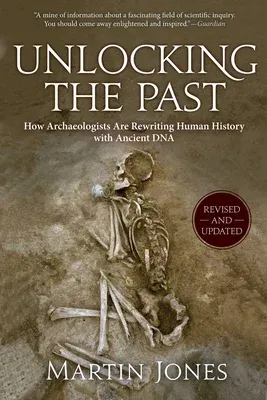In Unlocking the Past, Martin Jones, a leading expert at the forefront
of bioarchaeology--the discipline that gave Michael Crichton the premise
for Jurassic Park--explains how this pioneering science is rewriting
human history and unlocking stories of the past that could never have
been told before. For the first time, the building blocks of ancient
life--DNA, proteins, and fats that have long been trapped in fossils and
earth and rock--have become widely accessible to science. Working at the
cutting edge of genetic and other molecular technologies, researchers
have been probing the remains of these ancient biomolecules in human
skeletons, sediments and fossilized plants, dinosaur bones, and insects
trapped in amber. Their amazing discoveries have influenced the
archaeological debate at almost every level and continue to reshape our
understanding of the past.
Devising a molecular clock from a certain area of DNA, scientists were
able to determine that all humans descend from one common female
ancestor, dubbed "The Mitochondrial Eve," who lived around 150,000 years
ago. From molecules recovered through grinding stones and potsherds,
they reconstructed ancient diets and posited when such practices as
dairying and boiling water for cooking began. They have reconstituted
the beer left in the burial chamber of pharaohs and know what the
Iceman, the five-thousand-year-old hunter found in the Alps in the early
nineties, ate before his last journey. Conveying both the excitement of
innovative research and the sometimes bruising rough-and-tumble of
scientific debate, Jones has written a work of profound importance.
Unlocking the Past is science at its most engaging.

